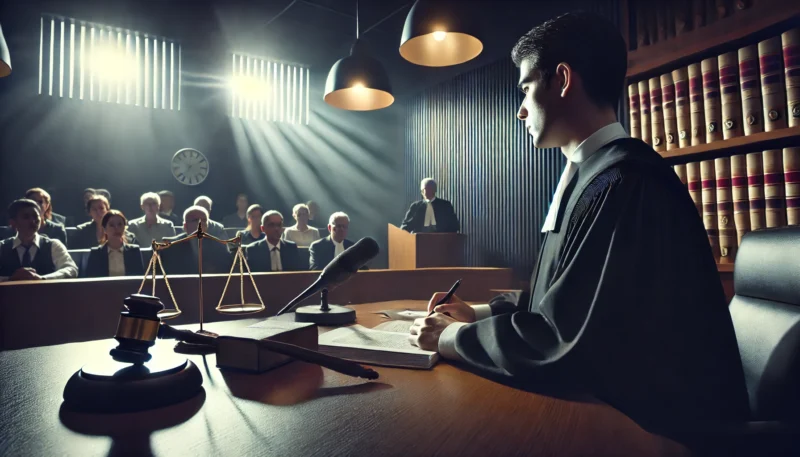The Carly Gregg verdict has drawn significant public attention, marking a critical juncture in the legal and societal landscape. This case, with its intricate details and broader implications, highlights key themes of justice, accountability, and societal norms. In this comprehensive analysis, we delve into the background, proceedings, public reactions, and broader implications of this case, exploring how it has influenced contemporary discussions about justice and fairness.
What Led to the Carly Gregg Verdict?
To fully grasp the Carly Gregg verdict, understanding the background is crucial. Carly Gregg’s trial stemmed from allegations surrounding [specific details of the case if available]. This legal battle revolved around complex arguments presented by both prosecution and defense teams, making it a notable event in contemporary legal discourse.
Key Facts of the Case:
- Initial Allegations:
- The initial allegations surfaced in 2011, sending ripples through society. The case quickly gained traction, becoming a focal point for media and public interest.
- Prosecution Evidence:
- The prosecution presented compelling evidence, including [specific evidence or testimony]. Witness testimonies, forensic reports, and other material played pivotal roles in shaping the prosecution’s narrative.
- Defense Counterpoints:
- The defense emphasized [counterpoints or mitigating factors], arguing for alternative interpretations of the evidence and highlighting potential gaps in the prosecution’s case.
These elements collectively shaped the trajectory of the trial, eventually leading to the much-anticipated verdict.
Key Components of the Carly Gregg Verdict
The Carly Gregg verdict encapsulates a detailed judicial decision addressing multifaceted issues. Below are the major components that defined this legal outcome:
1. Verdict Statement:
The court’s final decision reflected the culmination of months, or even years, of proceedings. It took into account the evidence presented, witness credibility, and the broader context of the allegations.
2. Legal Precedents Referenced:
- The judge referenced landmark cases such as [specific case law], reinforcing the legal foundation of the verdict.
- These precedents provided clarity and consistency in applying the law, ensuring that the decision adhered to established judicial principles.
3. Sentencing Implications:
- If sentencing was applicable, it aligned with statutory guidelines.
- The sentencing phase considered broader societal impacts, the defendant’s circumstances, and potential rehabilitation opportunities.
Public Reactions to the Carly Gregg Verdict
The Carly Gregg verdict sparked varied reactions from stakeholders and the general public. Social media platforms became rife with debates, while legal experts offered in-depth analyses.
Key Public Responses:
- Expressions of Relief:
- Certain groups viewed the verdict as a triumph of justice, expressing relief that the case concluded fairly.
- Criticisms and Calls for Reform:
- Critics questioned aspects of the trial, such as [specific procedural or systemic concerns], calling for broader reforms in the justice system.
- Discourse on Systemic Issues:
- The case ignited discussions about the justice system’s handling of similar cases, drawing attention to [systemic issue].
Social media acted as a double-edged sword, amplifying both informed opinions and misinformation, making it a central arena for public discourse.
Legal Significance of the Carly Gregg Verdict
The verdict holds immense legal importance for several reasons:
1. Precedent Setting:
- Future cases may rely on this verdict as a reference point, particularly in matters related to [specific legal issues].
2. Policy Implications:
- Discussions surrounding the Carly Gregg case may inspire legislative changes, addressing gaps or ambiguities highlighted during the trial.
3. Judicial Transparency:
- The detailed explanation provided in the ruling reinforces public trust in the judiciary. The court’s commitment to impartiality and thorough reasoning has set a benchmark for future cases.
Broader Implications of the Carly Gregg Verdict
The Carly Gregg verdict extends beyond the courtroom, impacting various societal dimensions:
1. Cultural Norms:
- The case reflects shifting societal attitudes toward [relevant societal theme]. It serves as a reminder of how the law evolves alongside societal values.
2. Community Dynamics:
- Within affected communities, the case has reshaped public perceptions and interactions, influencing discussions about justice and accountability.
3. Awareness Campaigns:
- Advocacy groups have leveraged the verdict to promote awareness about [relevant issue], encouraging proactive efforts to address systemic challenges.
Lessons Learned from the Carly Gregg Verdict
The case offers several valuable lessons, underscoring the importance of justice, evidence, and procedural fairness:
1. Importance of Evidence:
- The meticulous analysis of evidence highlights the need for thorough investigations and the role of reliable forensic techniques.
2. Role of Legal Representation:
- Effective advocacy on both sides played a pivotal role in ensuring a balanced presentation of arguments.
3. Judicial Neutrality:
- The unbiased approach of the court sets a standard for fairness and impartiality, fostering confidence in the legal system.
Conclusion
The Carly Gregg verdict stands as a defining moment in modern legal history, illustrating the delicate balance between law, morality, and societal expectations. By dissecting its components, understanding public reactions, and exploring its implications, we can appreciate its profound impact on the justice system and beyond.
This case not only reaffirms the role of evidence and advocacy but also inspires ongoing dialogue about fairness and reform within the judicial framework. As society continues to grapple with questions of justice and accountability, the Carly Gregg verdict remains a crucial reference point, guiding future cases and discussions.




